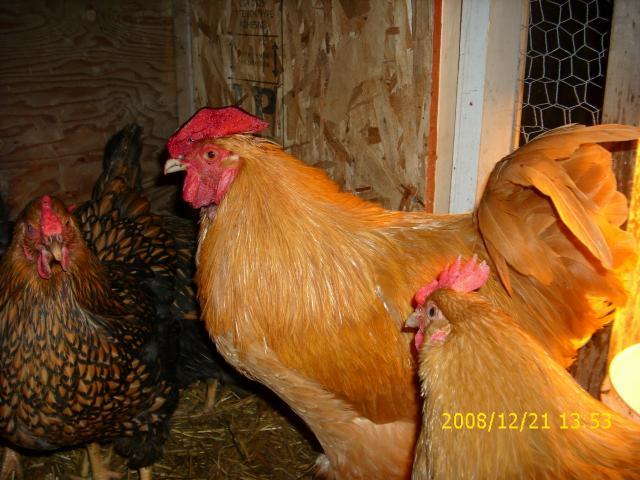We are in Nebraska, last week we were in blizzard conditions, one of the girls got left outside.




 We found her after she had been out for 24 hours in well below freezing temps, windchill - 20 .
We found her after she had been out for 24 hours in well below freezing temps, windchill - 20 .


 We brought her in the house, warmed her up in a towel, she slept peacefully in our arms for about an hour or so and then got restless, we put her in a big rubbermaid tub and she ate and ate and ate, drank water and then was busting out. She wanted to go and be with her flock mates. The coop is small but heated with a heat lamp. She is acting fine but her comb and wattles are very ugly.
We brought her in the house, warmed her up in a towel, she slept peacefully in our arms for about an hour or so and then got restless, we put her in a big rubbermaid tub and she ate and ate and ate, drank water and then was busting out. She wanted to go and be with her flock mates. The coop is small but heated with a heat lamp. She is acting fine but her comb and wattles are very ugly.
 When we brought her in her comb was frozen solid. As she began to warm up her pretty deep red comb was more puprle. Today it is very swollen and whiteish and just ugly looking. She is acting fine. She is eating fine. Drinking fine. She is a White Leghorn. I don't know what to do for her. She does not act like it hurts but it looks like it should hurt.
When we brought her in her comb was frozen solid. As she began to warm up her pretty deep red comb was more puprle. Today it is very swollen and whiteish and just ugly looking. She is acting fine. She is eating fine. Drinking fine. She is a White Leghorn. I don't know what to do for her. She does not act like it hurts but it looks like it should hurt.
It is not black like I keep reading frostbite should be. Please share your knowledge with me.
Thank you,
Joann









It is not black like I keep reading frostbite should be. Please share your knowledge with me.
Thank you,
Joann






